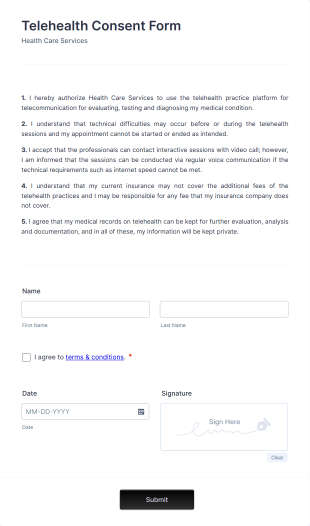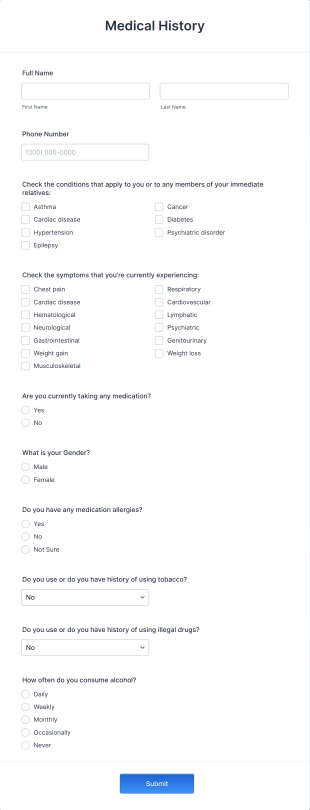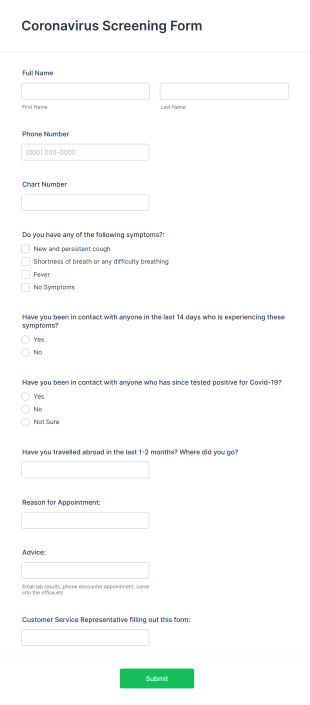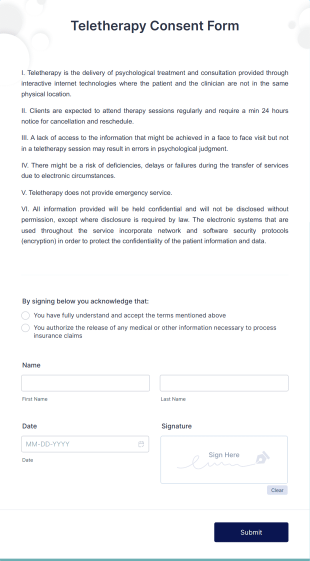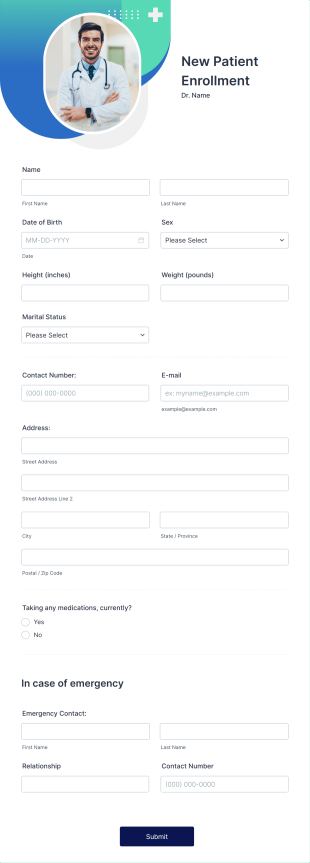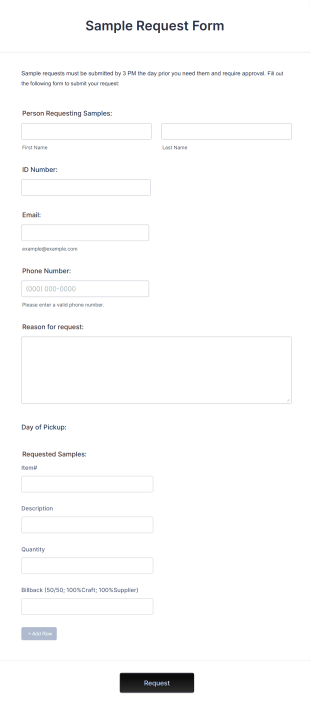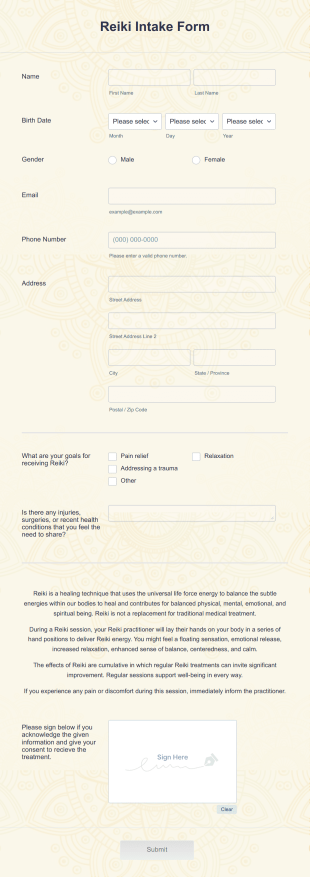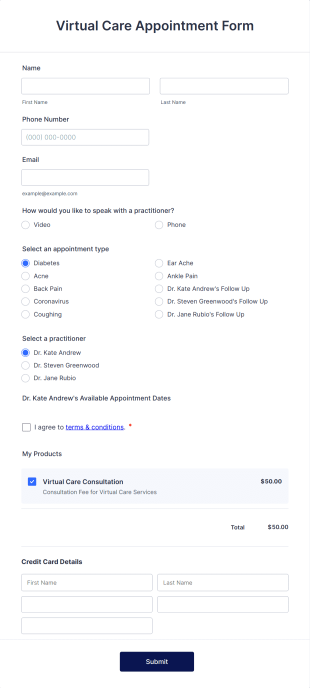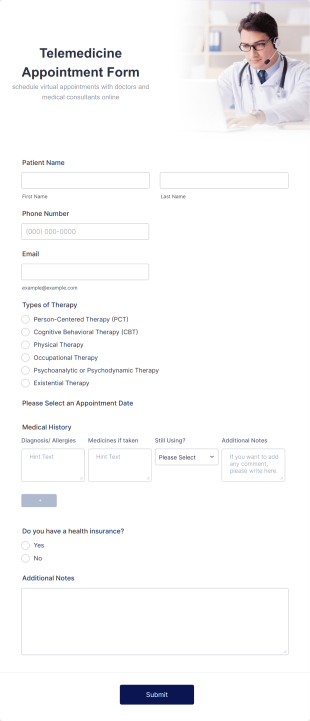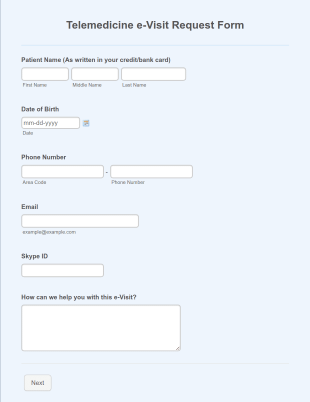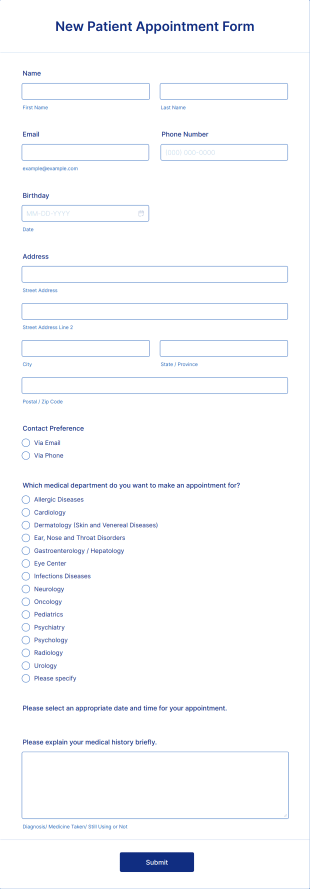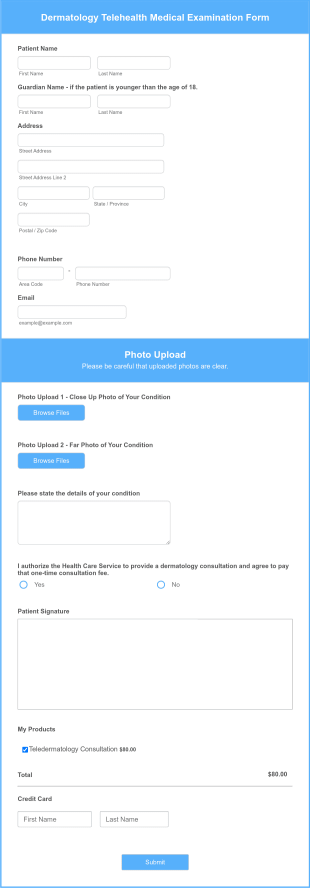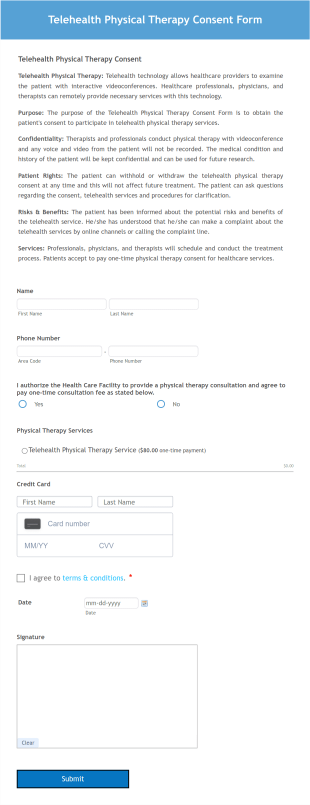Mental Health Intake Form FAQs
1) Why is a mental health intake form necessary for therapy or counseling?
Mental health intake forms are necessary for therapy and counseling because they allow clients to share important information about themselves and their condition prior to their appointment or session. By sharing this information, doctors and counselors can plan accordingly for an upcoming session. Intake forms are similar to briefs in that they collect information ahead of time to make a patient’s appointment more productive.
2) What kind of information is typically included in a mental health intake form?
Mental health intake forms usually collect general patient information along with mental health and illness-specific questions. Typical mental health intake forms collect contact information, insurance details, medication information, and information specific to a patient's medical history and symptoms.
3) How is a mental health intake form different from a regular medical intake form?
A mental health intake form is different from regular medical intake forms because it includes form fields for mental health-specific questions like symptoms and current medications.
4) Who is responsible for filling out the mental health intake form?
Mental health intake forms are filled out by patients or, if the patient is under the age of 18, their guardians.
5) Are mental health intake forms standardized across different therapists or clinics?
Mental health intake forms are not standardized, as some clinics and therapists might need to ask different questions that are specific to their practice. It is important to include basic fields in your forms for name, contact details, and insurance information — but that doesn’t mean your form has to look exactly the same as one for another clinic or therapist in a similar field.
6) Is the information on the mental health intake form kept confidential?
Yes, the information on mental health intake forms should be kept confidential. With Jotform, you can create forms that are secure and enable HIPAA compliance — perfect for protecting patient data and staying compliant with privacy regulations.

